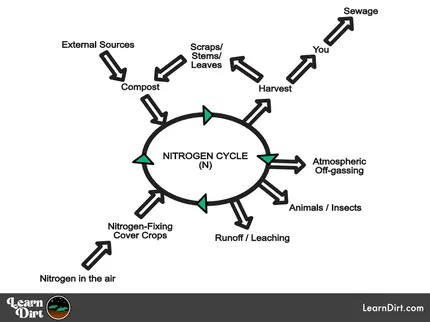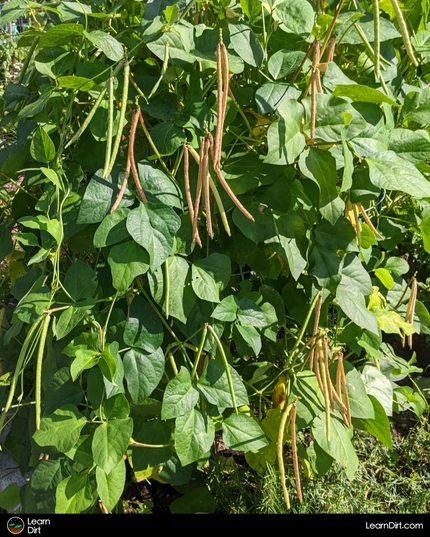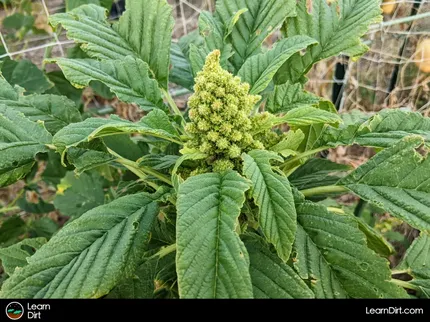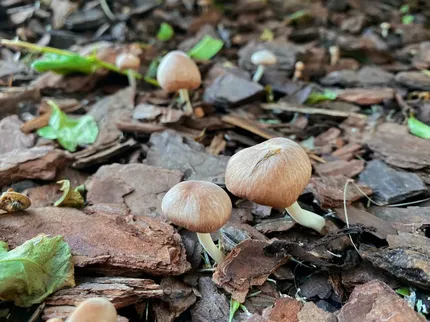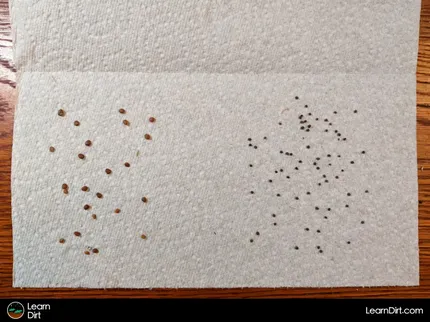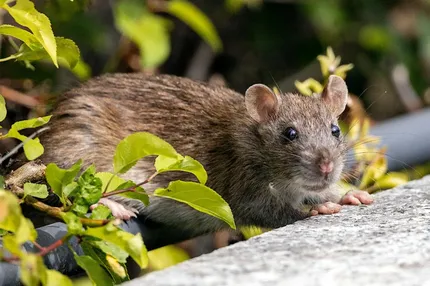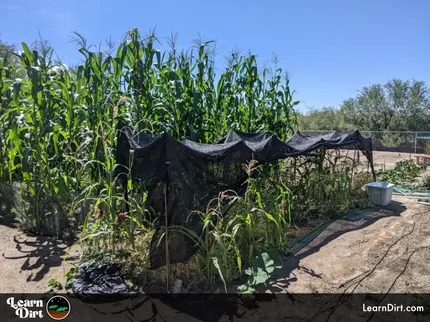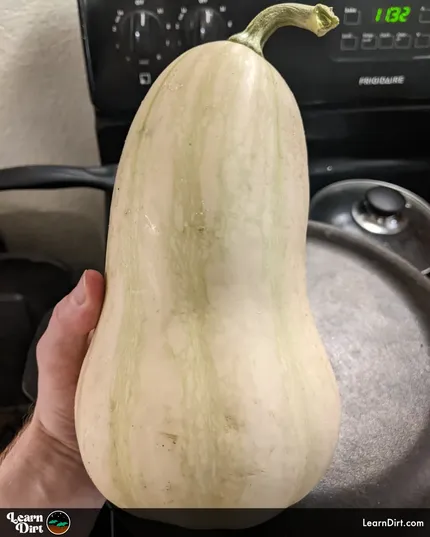Table of Contents
- What Is Miracle-Gro?
- Problems With Synthetic Fertilizer Use
- Is Miracle Grow Toxic?
- Alternatives to Synthetic Fertilizers
- Learn More About Organic Gardening
* Our articles never contain AI-generated slop *
What Is Miracle-Gro?
While Miracle-Gro does make a range of organic products nowadays, most people's association with this brand is through their tubs of synthetic crystalline all-purpose fertilizer.
These blue crystals are a highly water-soluble form of nutrients derived from byproducts of the chemical and slaughterhouse industries.
Problems With Synthetic Fertilizer Use
While "highly water-soluble" may sound like a quick and easy way to get nutrients to your plants, it comes with serious downsides and I would urge you to think twice before using it.
Disclaimer: This post may contain affiliate links. Refer to the privacy policy for more information.
Synthetic fertilizers are the "get rich quick" schemes of agriculture - promising quick returns and instant results today.
Remember, though, that there are always hidden costs to anything "quick and easy". Typically, short-term results come at the cost of long-term sustainability.
Things of true value, such as fertile organic soil, represent the culmination of years of hard work. There are no shortcuts to excellence.
Additionally, Miracle-Gro is not good for the environment. Let's look at some of the environmental side-effects from using those blue crystals:
Synthetic Fertilizers Pollute Groundwater
When a fertilizer is very soluble in water, it's telling you right on the package that it is going to leach into groundwater. That means that anyone downstream of your land will be dealing with your toxic runoff.

Synthetic fertilizers constitute one of the main sources of pollution for our streams, lakes, rivers, oceans, and aquifers. Just look at the Mississippi River to see the shear scale of ecological damage that synthetic fertilizers cause downstream. Mass die-off events downstream and severe eutrophication are heart-wrenching and lead to ecosystem collapse if we don't reverse course as quickly as we possibly can.
Join The Grower's Community
Looking for a place to meet growers,
ask questions, share knowledge, be heard,
and feel like you belong? 🌱
Check It Out!
Synthetics Kill Soil Microbiomes
Biology is intelligent. In organic systems, nutrients are broken down and released by microbes at slow steady rates, as necessary.
With synthetic chemical application, nutrients flood the soil and microbiome often at a rate and amount which microbes simply can't tolerate.
Plant health hinges upon there being enough nutrients of the right type, released in the right amount. Too little or too much nutrient availability will come at a detriment to plants.
If your goal is to supply just the right amount of nutrients to your plants, never too much nor too little, which of the following do you believe makes more sense for achieving that goal:
- Apply synthetic nutrients manually, once every 2-3 weeks - causing a spike and then subsequent crash in available nutrient levels
- Cultivate a healthy microbiome which breaks down and releases organic nutrients at a slow steady pace 24/7
If you chose option #2, you're wiser than the average gardener.
Just like blood sugar in humans, riding a rollercoaster of spikes and crashes is much more damaging to a system than a smooth and steady availability.
So too, in agricultural systems where an organic approach smoothes out the rollercoaster of spikes and crashes seen with synthetic fertilizer applications.
Is Miracle Grow Toxic?
If you've accidentally ingested Miracle-Gro, you should absolutely call poison control, get off the internet, and go to a hospital.
If you haven't ingested it and are wondering whether plants fertilized with Miracle-Gro are safe to eat - the answer is likely yes, they are safe to eat.
That doesn't mean you want to eat them, however! Plants grown in Miracle-Gro will be like any synthetically-grown veggie. Edible, but almost certainly lacking in nutrient density.
The most well-balanced nutrient profiles will always be found in veggies grown in a healthy thriving organic soil microbiome. Synthetic chemicals can try to replicate this environment but will always come up short.
Soil is an extremely complex soup of nutrients, minerals, trace elements, zillions of microbes in complex symbiotic reltionships, fungi moving water and nutrients around, and all manner of other critters happily cycling and balancing nutrients.
1 teaspoon of healthy living soil can contain a billion microbes or more, comprised of up to 50,000 different species. Humans have studied an estimates 2% of the critters in soil.
You can see how foolish it is, then, to think that we can replicate with synthetic chemicals what happens organically in living soil when we don't even understand 2% of what's goin on the in the dirt to begin with.
No, the more we study soil science and microbiology the more we come to understand just how little we really know about it. It's arrogant to think we can synthetically replicate what happens in a system we barely understand at all.
Organic produce will consistently contain more nutrient density and healthier nutrient profiles than anything grown in Miracle-gro or other synthetic fertilizers.
Alternatives to Synthetic Fertilizers
Rather than using synthetic fertilizers, regenerative organic agriculture focuses on building healthy soil through the use of cover crops, compost, and other organic amendments.
Check out our article on Alternatives to Miracle-Gro for a ton of great ideas.
Synthetic vs. Organic

Organic-Certified Products To Get Started
If you want to ditch the Miracle-Gro and jump into organic gardening today, you can grab these and be confident that you're off to a solid start:
- Dr. Earth Tomato, Veggie, and Herb Organic Fertilizer
- Down To Earth Alfalfa Meal
- Down To Earth Rock Phosphate
- Down To Earth Kelp Meal
Any garden could benefit from the above-listed organic fertilizer and amendments. I've put most important items for plants on the top of the list, so start there if you can't get all 4 at once.
Dig Cool Merch?
Eventually, if you get into more advanced organic gardening techniques like cover cropping and soil-building, you won't even need to buy organic inputs like these at all. For now, though, these will give you a great start on your organic gardening journey.
Learn More About Organic Gardening
If you're looking for a jumping-off point to kickstart your organic gardening journey, I highly recommend checking out our Organic Gardening Guide as well as our Intro to Regenerative Agriculture.
That's all for now, thanks for reading!
If you have any questions, comments, or would like to connect with fellow gardeners, head on over to the forum and post there.


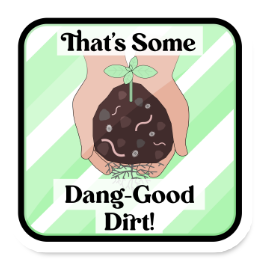





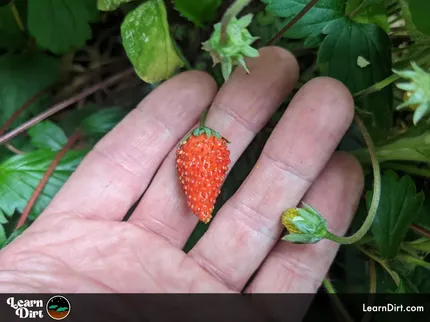
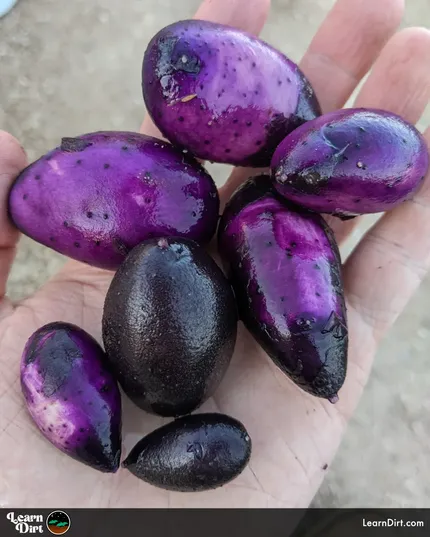
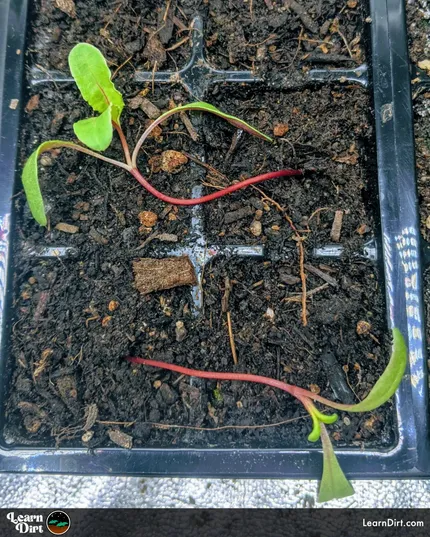
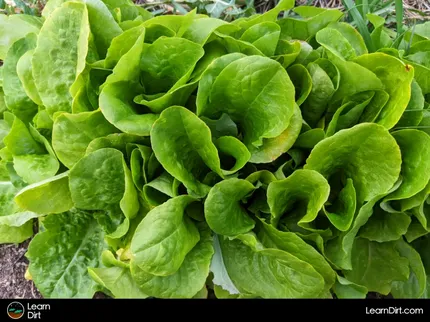
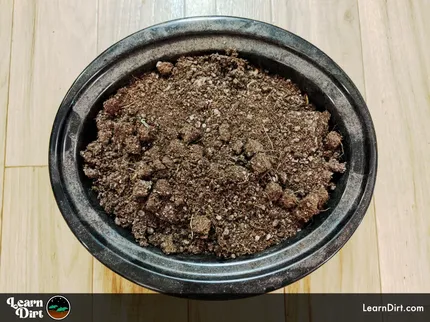
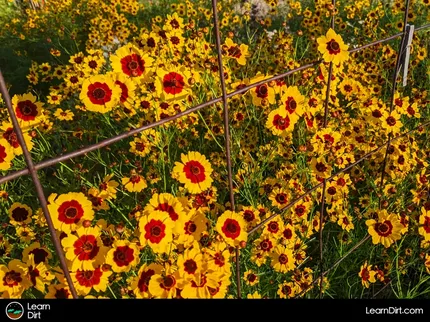
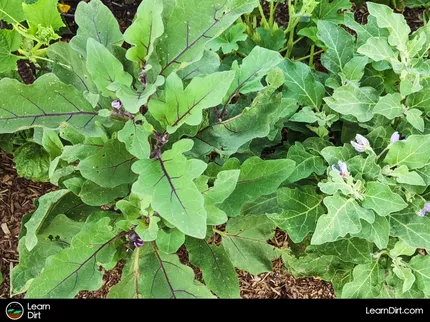
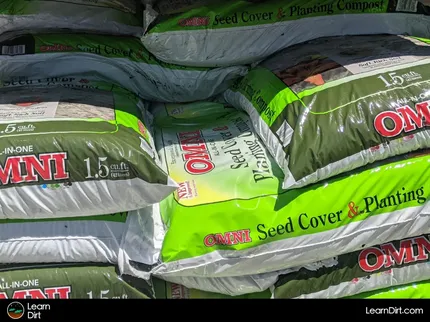

![Don't Till Away Your Carbon [Taffy] Sticker](/media/product_images/dont-till-away-your-carbon-[taffy]_sticker_260x260.png)


